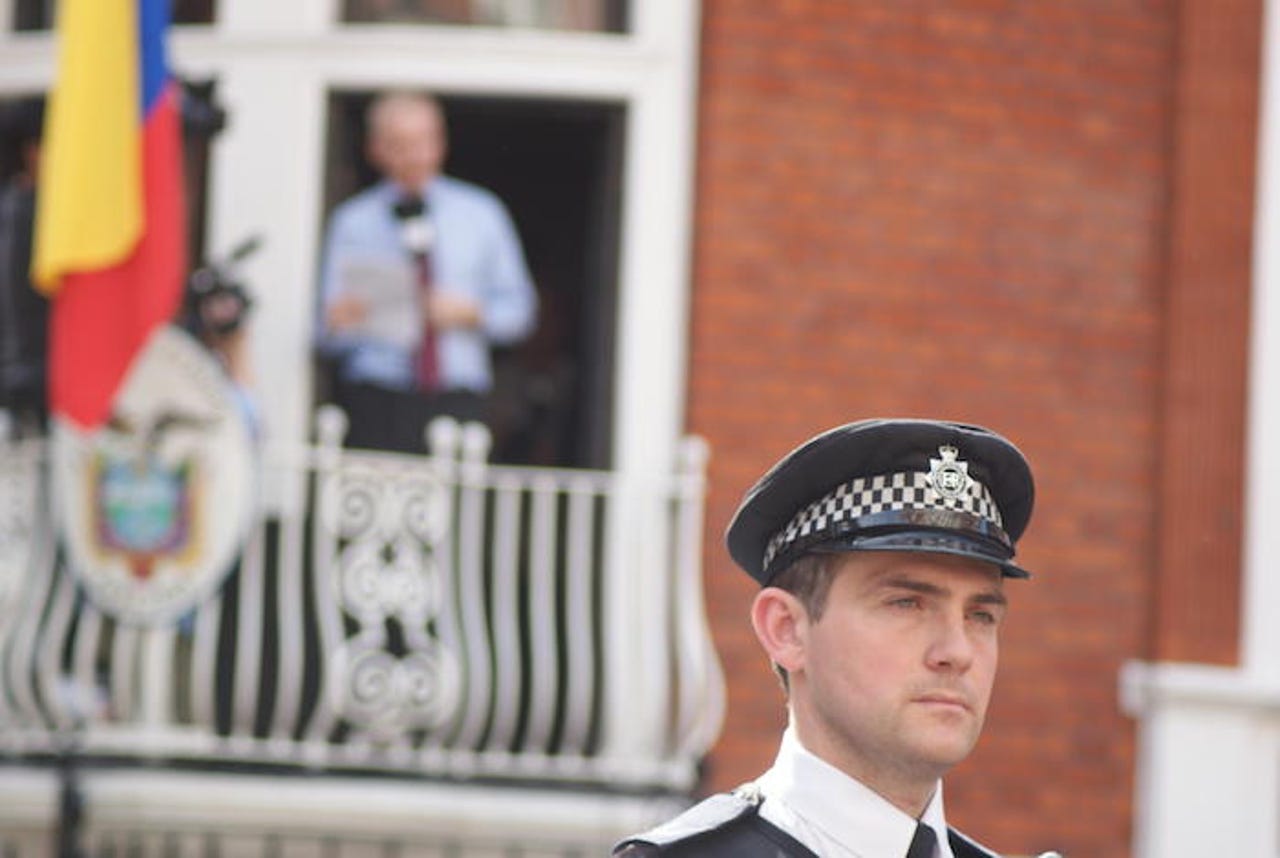UK police stop guarding Assange embassy, defers to 'covert' tactics


London's Metropolitan Police Service (MPS) will no longer maintain an active police presence guarding the Ecuadorean embassy, which has held whistleblower Julian Assange since 2012.
The MPS said in a statement it will instead "deploy a number of overt and covert tactics to arrest him," but did not elaborate further.
"The MPS has to balance the interests of justice in this case with the ongoing risks to the safety of Londoners and all those we protect, investigating crime and arresting offenders wanted for serious offenses, in deciding what a proportionate response is," the police service said.
Assange, founder and editor of leaking site WikiLeaks, entered the embassy to avoid extradition to Sweden to face questioning over sexual assault allegations, which he denies.
British police want to arrest Assange for skipping police bail ahead of his extradition.
The Ecuadorean government granted Australian-born Assange asylum days later.
Assange has previously voiced his concerns that he will be forced to travel to the US, where he could face espionage charges for leaking thousands of classified documents online, including the so-called "Spy Files," the "Syria Files," and, more recently, documents relating to the National Security Agency surveillance scandal.
The standoff has continued for more than three years.
British police are not allowed to enter the embassy without authorization from its ambassador or home country, which has been repeatedly denied.
But under the Vienna Convention, an international treaty that set up the diplomatic system, the host country is charged with protecting foreign embassies and missions.
The cost of guarding the embassy around the clock has been estimated at more than £12 million ($18.4m) since Assange entered the embassy in 2012.